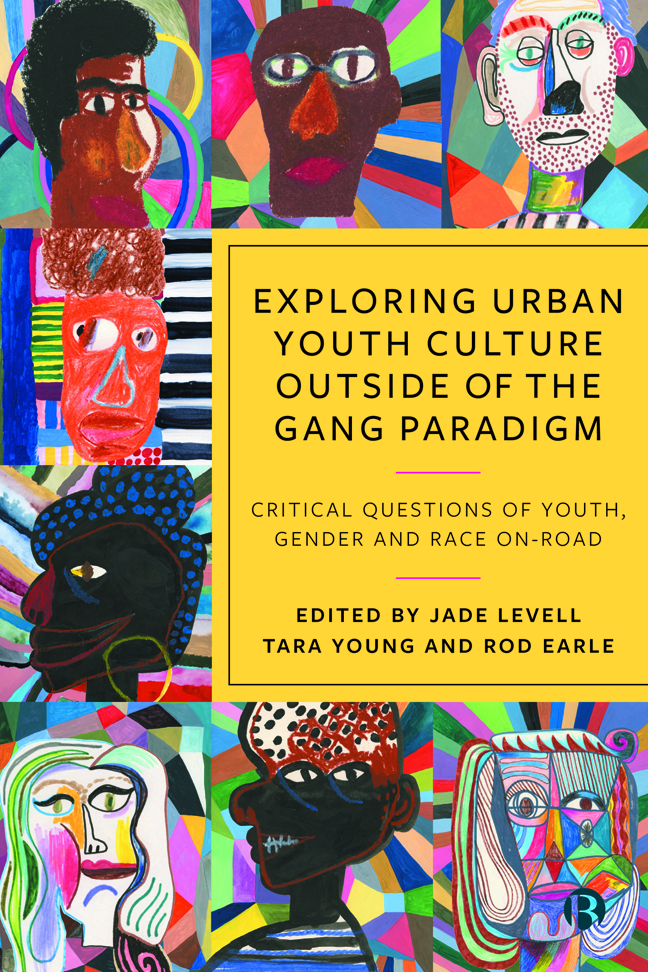 Exploring Urban Youth Culture Outside of the Gang Paradigm
Exploring Urban Youth Culture Outside of the Gang Paradigm Book contents
- Frontmatter
- Contents
- Notes on Contributors
- Foreword
- Preface
- 1 Introduction: Youth and On-Road – Making Gender and Race Matter
- 2 Black, British Young Women On-Road: Intersections of Gender, Race and Youth in British Interwar Youth Penal Reform
- 3 Tainted Love: Intimate Relationships and Gendered Violence On-Road
- 4 (The) Trouble with Friends: Narrative Stories of Friendship and Violence On-Road
- 5 The Sexual Politics of Masculinity and Vulnerability On-Road: Gender, Race and Male Victimisation
- 6 The Road, in Court: How UK Drill Music Became a Criminal Offence
- 7 On-Road Inside: Music as a Site of Carceral Convergence
- 8 Jeta e Rrugës: Translocal On-Road Hustle, Within and from Albania
- 9 ‘He's shown me the road’: Role Model and Roadman
- 10 Diary of an On-Road Criminologist: An Auto-Ethnographic Reflection
- 11 Conclusions, Compromises and Continuing Conversations
- Index
9 - ‘He's shown me the road’: Role Model and Roadman
Published online by Cambridge University Press: 24 January 2024
- Frontmatter
- Contents
- Notes on Contributors
- Foreword
- Preface
- 1 Introduction: Youth and On-Road – Making Gender and Race Matter
- 2 Black, British Young Women On-Road: Intersections of Gender, Race and Youth in British Interwar Youth Penal Reform
- 3 Tainted Love: Intimate Relationships and Gendered Violence On-Road
- 4 (The) Trouble with Friends: Narrative Stories of Friendship and Violence On-Road
- 5 The Sexual Politics of Masculinity and Vulnerability On-Road: Gender, Race and Male Victimisation
- 6 The Road, in Court: How UK Drill Music Became a Criminal Offence
- 7 On-Road Inside: Music as a Site of Carceral Convergence
- 8 Jeta e Rrugës: Translocal On-Road Hustle, Within and from Albania
- 9 ‘He's shown me the road’: Role Model and Roadman
- 10 Diary of an On-Road Criminologist: An Auto-Ethnographic Reflection
- 11 Conclusions, Compromises and Continuing Conversations
- Index
Summary
Introduction
This chapter outlines a conceptual framework for understanding the relationship between male adult youth work professionals characterised, or positioned, as ‘role models’ and young men positioned as ‘roadmen’. It begins with a critique of social policy that promotes male role models for young men in the UK, as it relates to both formal and informal education settings. It then sets out a theoretical perspective on masculine subjectivities using positioning and psychosocial theory and highlights some implications for our understanding of relationships between male youth professionals and young men. Using a closely observed case study of a young Black man and his older White male youth worker, this chapter argues that male youth workers seeking to proffer alternative ‘roads’ for younger men need to develop a deep, reflexive awareness of their own and young men's identity constructions. The chapter concludes that social policy making and professional training regimes may need to be more acutely attuned to the complexity of these professional relationships.
Role models and roadmen: policy and positioning
Role models
Considerable political capital has been spent, both in the United States and the United Kingdom, on ‘solving’ the problem of youth crime and violence via the promotion of appropriate ‘role models’ and ‘mentors’ for ‘alienated’, and especially Black, young men. Politicians from both of the main British political parties have promoted this common-sense notion despite that it seems to consist of a set of assumptions that have come to be accepted ‘on the basis of limited evidence and challenge’ (Robb, 2014: 238). Drawing on classic social learning theory (Bandura, 1977) and/or sociological, dramaturgical formulations of identity performance (Goffman, 1959), young people are understood as potentially being redirected along new, non-deviant pathways or ‘roads’ when these are set out or ‘shown’ by an older role model/mentor. This is assumed to occur through a process of imitation and eventual inhabitation of preconceived social roles, which are usually presented as more respectable, law-abiding and successful. Arguably, though, it remains unclear what the precise meaning and function of these male role models might be, and how the process of modelling and behavioural change occurs on the ground in face-to-face youth work practice.
- Type
- Chapter
- Information
- Exploring Urban Youth Culture Outside of the Gang ParadigmCritical Questions of Youth, Gender and Race On-Road, pp. 155 - 169Publisher: Bristol University PressPrint publication year: 2023
